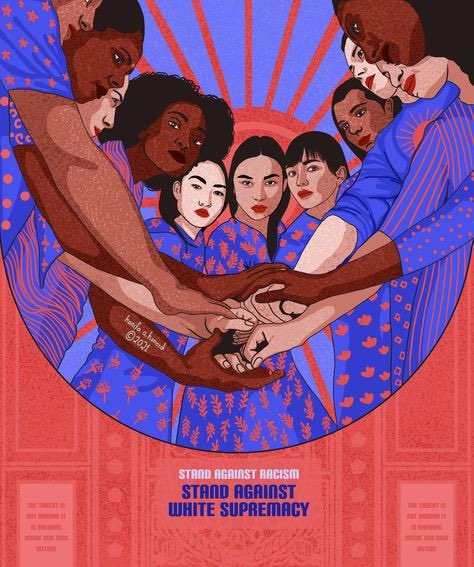East and Southeast Asian countries, including the cities of Hong Kong and Macau, hold the world’s highest proportion of female prisoners. In this region, 6% of all prisoners are women, surpassing the global average of 4.4%. The top spot goes to Hong Kong, where women make up 20.1% of the prison population.
How is it that Hong Kong and Macau, two metropolitan areas associated with wealth, along with several Southeast Asian countries, all face a high rate of women behind bars?
The answer is simple: the ‘War on Drugs’.
The majority of women behind bars in East and Southeast Asia face drug offences. 82% of women in prisons in Thailand and 53% in the Philippines are incarcerated for these reasons. The prevalence of women being jailed on drug trafficking convictions throughout Asia reflects the global trend: women comprise the fastest-growing prison demographic, with high rates of imprisonment for drug-related offences, most likely as low-level drug mules.
Asia’s War on Drugs
The region that joins Myanmar, Thailand, and Laos, often referred to as the Golden Triangle, is one of the world’s busiest drug trafficking hubs. The Golden Triangle region is infamous for the cultivation of opium, which is used for heroin production. As the pressure for synthetic drugs surpasses the demand for heroin, this region has become one of the global centers of both opiate and methamphetamine production, which is worth up to $61 billion a year in the Asia Pacific alone.
The phrase ‘War on Drugs’ refers to government-led action that aims to stop illegal drug use, distribution, and trade, usually done through increasing prison sentences for both drug dealers and consumers. As Asia’s drug-related problems grow larger day by day, governments are ramping up the sentences and punishment given to people caught taking part in the illegal drug trade. Prison terms of 14 to 20 years were common for female drug traffickers prosecuted in Hong Kong, some of the severest sentences in 18 jurisdictions studied in a report.
Women are falling victim to the heightened War on Drugs
A disproportionate amount of women are being thrown into jails because of the intense battle against illicit drugs. Criminologists widely agree that the increase in women being convicted is not due to criminal activity, but due to tougher sentencing for low-level drug crimes, since women tend to be involved at the bottom rings of the trade, where most arrests take place.
Most of the women imprisoned for drug offences are not career criminals, but come from marginalized backgrounds, making them easy prey for drug syndicates. Low education levels, poverty, unstable employment, a history with domestic abuse, and single motherhood all contribute to their vulnerability. Their participation in the illicit drug trade can often be attributed to oppression and fear. Since women tend to accept lower rates of payments than men when carrying out drug trafficking activities, some drug trafficking organizations use these women as ‘mules’. Several women involved in trafficking drugs are also victims of trafficking for sexual exploitation. Women being duped to transport drugs is also common, such as being asked by a foreign man to carry luggage that unknowingly held drugs in it or partaking out of the sense that they are helping loved ones. When these women are caught by authorities, they are likely to be jailed instead of being treated as victims.
The situation throughout Asian regions proves that by being gender-neutral, we are ignoring systemic gender biases against women, a major flaw in the conventional justice system. Gender inequalities make women extremely vulnerable to violence and abuse from both traffickers and the criminal justice system. When it comes to sentencing, there is little room to consider each woman’s circumstances, such as exploitation. Additionally, a 2018 report found that gender inequality in prosecutions of women for drug offences include poorer access to legal representation and bail. Women accused of low-level drug trafficking also received longer sentences than men up the chain as they had less information to trade for plea deals.
The over-incarceration of women has a direct impact on families and children. Those who are mothers, especially single mothers, are often the primary caretaker and income producers of the family. Yet, the socio-economic situation of some of these women is never considered in trials.
Foreign women and Malaysia’s death row
As of February 2019, 1,281 people faced execution in Malaysia, making up one of the largest death rows in Southeast Asia. Judges frequently sentence people to death for drug trafficking, and lawyers say the conditions to dismiss the penalty are almost impossible to meet. 95% of the 141 women awaiting execution were convicted for drug trafficking, compared to 70% of men, and 90% of the women on death row for drug trafficking are foreigners.
The justice system is not only stacked against women but also non-locals. In Malaysia, foreigners are only guaranteed legal representation at trial, with a lack of interpreters and lawyers at arrest. In 2010, Maryam Mansour, a single mother from Tehran, was arrested in Kuala Lumpur with an Iranian man, who she described as her boyfriend. Police found 2.2kg of meth in her bag, but on interrogation, all questions directed towards Mansour were answered by the man. Court documents say she asked for an interpreter, but the boyfriend, who spoke English, told her not to worry. He was released and later deemed untraceable while Mansour was sentenced to death.
It’s time we address the mass incarceration of women by the War on Drugs
The reality is that these women, contrary to the narrative of governments, seldom pose a threat to society. They are often poor women who are responsible for young children and are trying to escape poverty to support their families. The low levels at which they operate within trafficking chains, roles as small as distributors or consumers, do not align with the fear through which governments justify their aggressive sentencing approach.
When it comes to drug laws and policies not only in Asia but around the world, the gender and human rights aspect is overlooked. The majority of the women in Asia’s jails are being punished for victimless crimes and should not be behind bars. We must begin to recognize the effects of restrictive policies and the lives ruined in pursuit of a drug-free world. When waging a war on drugs, governments need to address the gendered aspect of trafficking and take the necessary steps to protect victims, especially foreign women. Significant change will only come if we stop criminalizing drugs, and fight for gender and social equality. Women’s incarceration rates are rising not because of increases in crime or drug use, but because of destructive policies, over-policing, and the stigma put in place with the war on drugs.
Sources
https://www.cnn.com/2020/08/16/asia/women-drug-trafficking-mules-hnk-intl-dst-as-equals/index.html


